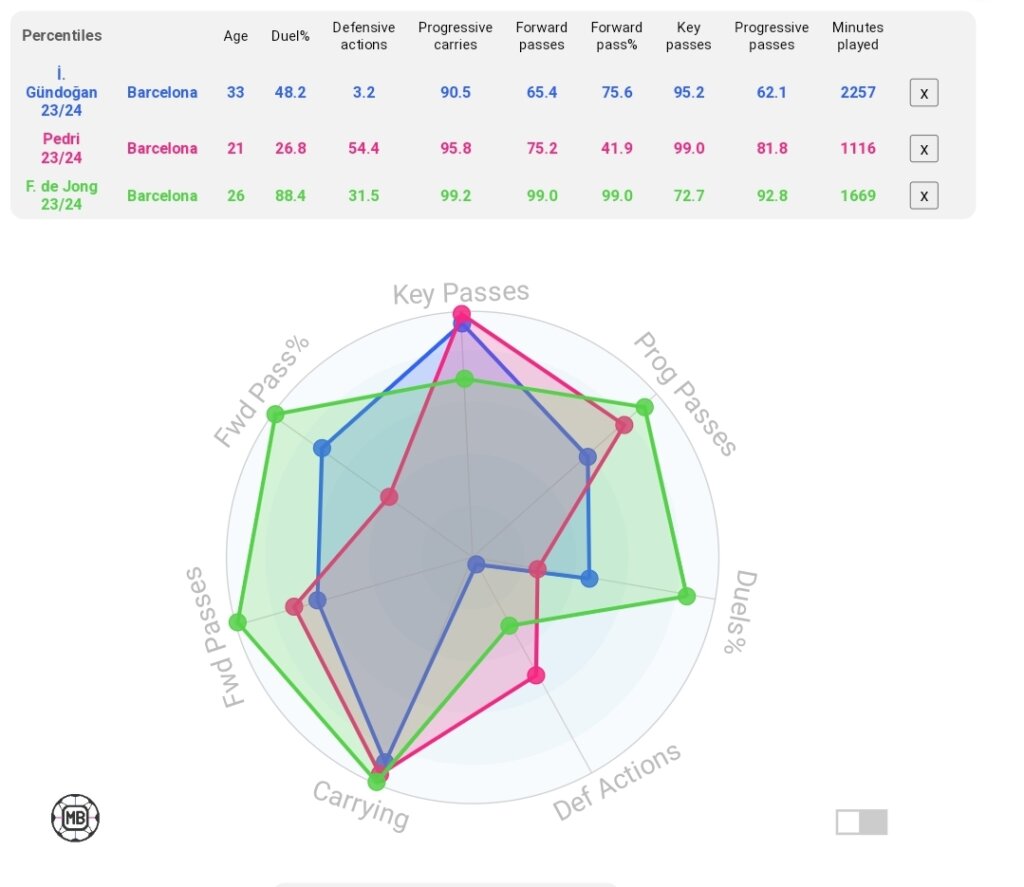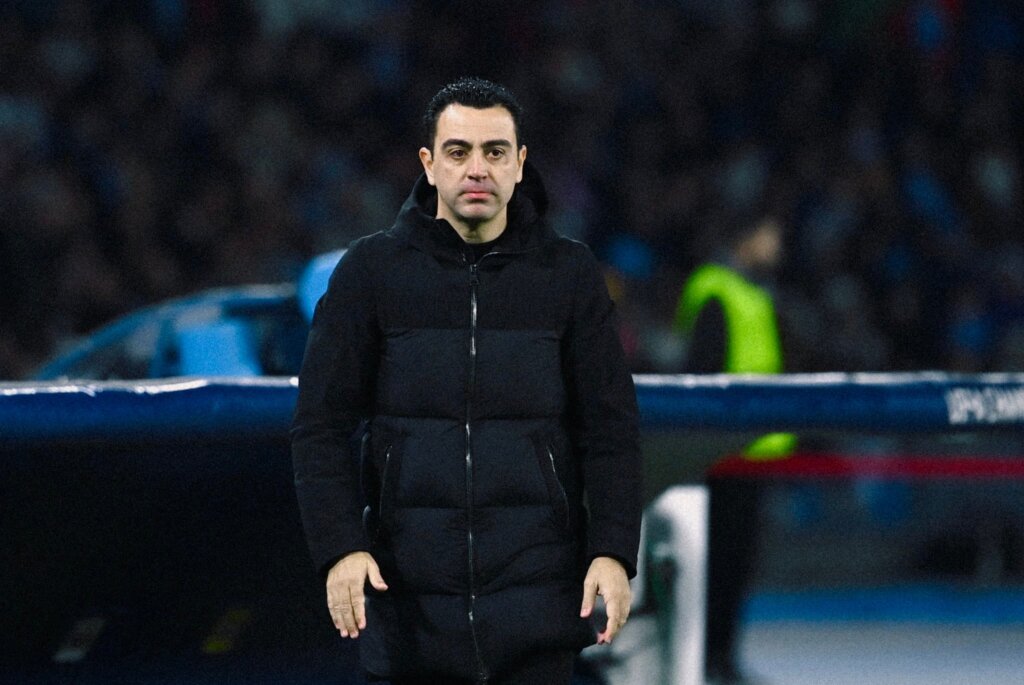Barcelona’ s inconsistency continues on a journey embarked on, following the departure of Lionel Messi, which brought an end to an era that saw them rule in Europe since the days of Ronaldinho.
Xavi Hernandez, a club legend has come and is about to take his leave after two seasons and a half, where he did win both the La Liga and a Spanish Super Cup titles.
The imminent appointment of their next manager carries immense weight and expectation. With the club facing a financial constraints exacerbated by Lionel Messi’s departure, the incoming coach faces a monumental task of maintaining Barcelona’s standards while navigating turbulent waters.
Barcelona appears to be up against the reality following the departure of some of the greats in the history of the beautiful game, but fans are yet to wake up to the reality, which is already down upon them.
Barcelona before Ronaldinho, Lionel Messi…
Barcelona, before being graced by the presence of some of the greatest names in football recently, Barcelona endured a dark spell early years of the 21st century as they could neither match the talent of players at Real Madrid or other heavyweights in Europe nor do they have the financial buoyancy to compete.
Before the emergence of Ronaldinho and Messi, the club endured a prolonged period of struggle and disappointment, characterized by on-field mediocrity, off-field turmoil, and a lack of silverware.
Before the arrival of Brazilian maestro Ronaldinho in the summer 2003, Barcelona went on a run of five straight seasons without winning the league title between 1999 and 2004.
Louis van Gaal’s two contrasting spells
Back in the days, it was the managers that bear the brunt of the poor performances and in that period, Louis van Gaal, who replaced late Sir Bobby Robson in 1997 after the English great spent just one season, was called back in 2002, after both Lorenzo Serra Ferrer and Carles Rexach have been hired and fired between 2000 and 2001.
The Dutchman enjoyed a successful first spell at Barcelona, winning back-to-back league titles in 1997/98 and 1998/99 before returning home to the Netherlands to take charge of the national team, where he failed woefully.
In 2002, Barcelona reappointed the now 72-year-old but showed him the exit door after six months on the job, following what was a disastrous second spell.
Louis van Gaal recorded just six out of 19 league games, results which left the club languishing in 12th place, three points above the relegation zone. There was no other option than to get rid of the coach.
Sacking of manager was what kept the club going at the start of the century, with Tono de le Cruz and Radomir Antic also falling victim before the appointment of former player Frank Rijkaard later in 2003.
Individual brilliance or tradition – What brought about Barcelona’s era of dominance ?
Frank Rijkaard’s arrival coincided with that of Ronaldinho and that sparkled the era of dominance, which also saw the club won their second UEFA Champions League title in 2006.
Inspired by the sensational Brazilian, Barcelona defeated 10man Arsenal 2-1 in Paris to win the competition for the first time since 1991-92, a testament that the club had come a long way since their last one.
Ronaldinho was not alone the classy player in the ranks at the time, he had the company of some of the best players in the world in the likes of Samuel Eto’o Fils, Deco and others.
The likes of Lionel Messi, Xavi Hernandez and Andres Iniesta were just being integrated into the ranks at the time, and as luck would have it, the grew into a golden generation, took up the baton in the wake of the departure of their predecessors and went on to define a decade of dominance.
So you might want to ask the question, if indeed it had been the tiki-taka philosophy responsible for the success of the club, or the presence of standout individuals, that barely had equals in their prime.
Barcelona’s struggles started following the departure of one of the members of their iconic midfield trio, Xavi Hernandez, at the end of the 2014-15 campaign, which coincided with the club’s last UEFA Champions League title.
The Spanish trio of Xavi, Iniesta and Sergio Busquets formed a formidable midfield trio, with vast understanding of the club’s traditional way of playing having progressed through the ranks at the club. Their success was also extended to the national team.
The club’s struggles became more obvious after Andres Iniesta left three years later. And even though the club still managed to win a couple of La Liga titles, their best period of success post Xavi Hernandez in midfield can be associated with Ernesto Valverde, under whom the club did not really employ the tiki-taka philosophy.
More problem post Lionel Messi…
While under Ernesto Valverde, the fans were not impressed with his tactics as it opposes the tradition of the club. Though results were better compared to other managers post Luis Enrique, the believe of fans is that the now Athletic Club boss was beneficial of Lionel Messi‘s genius.
And how many former Barcelona manager did not ?
Responding to question while emphasizing on why Chelsea should stick with Graham Potter in January 2023, Pep Guardiola was quoted to have said; “In Barcelona I didn’t need two seasons because I had [Lionel] Messi there.”
Of course every manager who has been privileged to coach the eight time Ballon d’or winner is really blessed, because he is able to make things happen and consistently, like no other could.
However, every good thing eventually comes to an end and now the Argentine has departed and with Sergio Busquets and Jordi Alba also out of the picture, the club is returned to the days of yore, as they can no longer rely on such individual brilliance.
Rebuilding without Lionel Messi and others
Lionel Messi’s departure marked the end of an era at Barcelona, leaving a void both on and off the pitch. The financial implications of his departure has left the club in turmoil, one which club president Joan Laporta rather let escalate due to his reluctant to accept the reality, yet making moves that has led to a consequential future.
Now, it is one manager after another. Since the departure of Luis Enrique in 2017, Barcelona has employed four managers, with Ernesto Valverde, 2017 to 2020 being the longest server in that period.
Quique Satien could not last a year while Ronald Koeman lasted just a few months more than a year, and even Xavi Hernandez is now set to leave the club at the end of the campaign despite winning the league title last summer.
Expectations awaiting Xavi’s successor in Barcelona ?
The next manager must address the tactical and emotional repercussions of the end of their golden generation, because Lionel Messi and the likes are never returning.
Emphasizing on collective effort over individual brilliance becomes paramount. Xavi trusted in Robert Lewandowski’s ability to score goals but the striker has let him down this season, as the former Bayern Munich man has missed 16 big and crucial chances, which has costed the club in the league.
Barcelona’s new coach must instill a cohesive playing style that maximizes the talents of the squad members while integrating new signings and youth prospects.
Lamine Yamal has been a revelation this season haven been promoted from La Masia. One would wonder where the club could have been without the 16-year-old this season. He is an evidence of what the club’s reputable academy can produce.
Whether it be a return to the iconic tiki-taka style or a more pragmatic approach, tactical innovation will be key to Barcelona’s success.
Stereotype of midfielders to scout should differ
It is time the club start scouting different type of midfielders to compliment the current crop they have. Gone are the days of the Sergio Busquets type of midfielders.
The squad is obviously rich in talent but the approach has limited the optimization of individuals, while the midfield also encompasses too many similar profile.
Frenkie de Jong, Ilkay Gundogan and Pedri Gonzalez are all players with notable defensive frailties, yet all three are starting for games for the club at a time, on most occasions. Hence, club looks weak defensively.
Barcelona has to now go for those have have the physicality, duel monsters and the with the legs to cover a lot of ground with or without the ball.
Oriol Romeu has obviously failed to live to expectations as the short-term successor of Busquets, and not only because he does not possess the qualities to thrive but also because the team has demanded so much more.
Barcelona are not as dominant as they were, though not entirely unimposive. They still average the most possession in La Liga this season with just over 65 per cent. However, in advanced areas of the field, they struggle for cohesion in possession.

With quality of chances created, Barcelona sits just above Atletico Madrid with 89 to the latter’s 88. Unfortunately, 64 percent of those big chances has been missed.
To add to the misery of the club, aside from showing inconsistency in front of goal, they also show less hunger when defending in their half. Barcelona has conceded 34 league goals this season, which is the most for any side in the top ten of the standing. Awful right ? Yeah. And when you add the fact that they conceded 20 in the entirety of last season. Then it becomes ridiculous.
More emphasy on discipline – additional task
Instilling positional discipline while off possession will be another challenge for the new manager. It is the continuity of a new era, where the philosophy of the club has failed to help retain their reputation.
The financial difficulties will also have it’s impact in the imminent future, predictably from the approaching summer. The situation is a deja vu, and a seasoned portion of the Barcelona fans is familiar.
Barcelona is a club accustomed to success, and the expectations from fans, media, and stakeholders will remain sky-high. However, the transition period following end of their goated era and amidst financial uncertainty necessitates patience and realistic expectations.
Understanding the effect of financial difficulties on vision
The new manager must communicate a clear vision for the club’s future while managing expectations and garnering support from all quarters during what may be a challenging rebuilding phase.
The club’s well-documented financial crisis presents a significant challenge for the incoming boss. The need to balance sporting ambitions with fiscal responsibility requires astute squad management and recruitment strategies.

Moreso, the club management and next manager should work on revitalizing La Masia philosophy, place greater emphasis on youth development and promoting a style of play rooted in Barcelona’s principles of possession-based football.
Maybe in the future, another Ronaldinho or Lionel Messi will come through the ranks. Until then, club has to embrace their reality.
Hassan Afolabi
The post Barcelona : Navigating challenges amidst financial crisis and the end of a GOATed era first appeared on OLT Sports.

